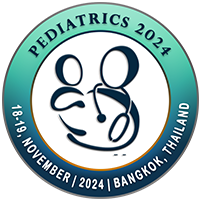
Celina Korzeniowski
Aconcagua University, ArgentinaTitle: Impact of covid-19 pandemic on the development of children’s executive functions: Implications for school-based interventions
Abstract
The pandemic of COVID-19 has had a significant impact on children’s lives. Worldwide, there has been evidence of a decline in children's mental health, well-being, and quality of life. Few studies, however, have reported the pandemic's impact on children's cognitive functioning. Executive functions (EFs) are a set of high-order cognitive functions involved in behavior and emotions self-regulation. EFs are powerful predictors of school performance, child’s well-being and health. During crisis and disaster, EFs are critical resources to cope with unusual and complex situations, and to find novel solutions to problems. Because of EFs’ extensive growth, there are many time periods during which experience has the greatest effect on brain development. Therefore, EFs are among the cognitive systems that are most vulnerable to environmental stress. As a result, children's emotional distress has been related to concentration and memory problems, difficulties managing impulses and emotions, and difficulties in planning ahead. Recent research has found executive dysfunction in children and adolescents during pandemic. Adopting an ecological contextual model, this study aimed to identify factors associated to pandemic that may affect children's performance and development of EFs, as well as, to propose a set of evidence-based strategies for teachers to assist children manage stress and promote EFs during crisis. Peer-reviewed academic articles, books, and web resources published between 2010 and 2023 were chosen for review in this study. As a result, child stress, family stress, school closure, changes in child-teacher interactions, and unhealthy habits are highlighted as potential factors influencing child EF development. In response to the Sustainable Development Goals agenda, a set of strategies was developed that may be easily included into the school curriculum. Creating school-based interventions to develop students' EFs is one approach to improve children's crisis-response resources.
Biography
Celina Korzeniowski has a PhD in Psychology (2015), National University of San Luis, Argentina. She is a Researcher at the National Scientific and Technical Research Council (CONICET), Argentina; and an Associate Professor at the School of Psychology Aconcagua University, Argentina. Member of the Editorial Board of the University of Aconcagua publishing institute. Senior Editor of Oxford Symposium on School-Based Family Counseling’s Proceedings. Presently involved in Educational Psychology and Neurocognitive Psychology. She focuses on research involving neuro-cognitive evaluation and design of ecological interventions to promote cognitive development in children. She has made presentations to national and international scientific meetings and authored publications in national and foreign indexed journals. Since 2018, she has participated in the Oxford Symposium in School-Based Family Counseling, held at the University of Oxford, England. In 2021, she received the award for Outstanding Contribution to School-Based Family Counseling. She is a member of national and international research projects. Since 2020, she is a member of Disastershock Global Team aimed at creating resources to help children and family facing crisis and disasters.

